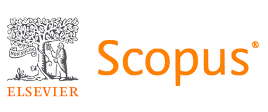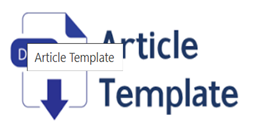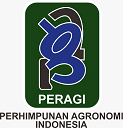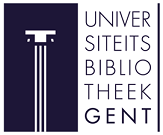The Role of the Millennial Generation in Developing Urban Farming as a Food Security Solution for Times of Crisis in Indonesia
Abstract
This research analyses the role of millennials in the development of urban farming in Malang Regency, representing an area with high urban farming potential in Indonesia. Using a quantitative approach through an explanatory survey design, the study involved 210 millennial farmer respondents (aged 25-40) from 33 sub-districts in Malang Regency. Data was collected through a structured questionnaire with a 5-point Likert scale and analysed using PLS-SEM with WarpPLS 8.0. The model tests the relationship between five exogenous variables: Digital Technology Competency (X1), Entrepreneurial Ability (X2), Technical Knowledge (X3), Sustainability Awareness (X4), and Ecosystem Support (X5), and Local Food Resilience (Y), with Innovation Adoption (M) as a mediator. The main findings show the model is excellent (R² = 0.937) with all hypotheses significantly confirmed. Entrepreneurial ability has the strongest influence (β=0.42, p<0.05), followed by Digital Technology Competence and Ecosystem Support (β=0.36), Sustainability Awareness (β=0.31), and Technical Knowledge (β=0.25). Innovation adoption is proven to be an effective mediator, especially through Ecosystem Support (β=0.65, p<0.01). The research identified two innovative models: the NFT Vertical Hydroponic System and the IoT-based Smart Greenhouse Integrated Farming, which achieved 90% water efficiency and produced premium products. The significance of the research lies in its theoretical contribution regarding the role of millennials in food security and its practical implications for the development of national agricultural policy. The findings can be replicated in other urban areas of Indonesia with similar demographic and geographic characteristics, providing a blueprint for sustainable urban farming development to strengthen national food security.
Keywords
Full Text:
PDFReferences
Anuraga, Gangga et al. 2021. “Pelatihan Pengujian Hipotesis Statistika Dasar Dengan Software R” Budimas 03(2):327–34. https://jurnal.stie-aas.ac.id/index.php/JAIM/article/view/2412
Ariani, Mewa, and Achmad Suryana. 2023. “Kinerja Ketahanan Pangan Indonesia: Pembelajaran Dari Penilaian Dengan Kriteria Global Dan Nasional.” Analisis Kebijakan Pertanian 21(1):1–20. https://doi.org/10.21082/akp.v21i1.1-20
Creswell, John W., and J. David Creswell. 2017. Research Design: Qualitative, Quantitative, and Mixed Methods Approaches. Sage publications. books.google.com
Eigenbrod, Christine, and Nazim Gruda. 2015. “Urban Vegetable for Food Security in Cities. A Review.” Agronomy for Sustainable Development 35:483–98. https://link.springer.com/article/10.1007/s13593-014-0273-y
Golden, Christopher D. et al. 2016. “Ecosystem Services and Food Security: Assessing Inequality at Community, Household and Individual Scales.” Environmental Conservation 43(4):381–88. https://doi.org/10.1017/S0376892916000163
Hak, Bimo Muhammad Nasrul. 2018. “Persepsi Dan Minat Pemuda Desa Menjadi Petani Di Desa Jatikerto Kecamatan Kromengan Kabupaten Malang.” Skripsi. Fakultas Pertanian Universitas Brawijaya. Malang. repository.ub.ac.id
Kock, Ned. 2017. “WarpPLS User Manual: Version 6.0.” ScriptWarp Systems: Laredo, TX, USA 141:47–60. scriptwarp.com
Mardiana, Novi, and Ahmad Faqih. 2019. “Model Sem-Pls Terbaik Untuk Evaluasi Pembelajaran Matematika Diskrit Dengan Lms.” BAREKENG: Jurnal Ilmu Matematika Dan Terapan 13(3):157–70. doi: 10.30598/barekengvol13iss3pp157-170ar898. ojs3.unpatti.ac.id
Milestad, Rebecka et al. 2012. “Farms and Farmers Facing Change: The Adaptive Approach.” Pp. 365–85 in Farming Systems Research into the 21st century: The new dynamic. Springer. https://link.springer.com/chapter/10.1007/978-94-007-4503-2_16
Moghayedi, Alireza et al. 2022. “Effects of Urban Smart Farming on Local Economy and Food Production in Urban Areas in African Cities.” Sustainability 14(17):10836. https://doi.org/10.3390/su141710836
Mwangi, Margaret, and Samuel Kariuki. 2015. “Factors Determining Adoption of New Agricultural Technology by Smallholder Farmers in Developing Countries.” Journal of Economics and Sustainable Development 6(5). core.ac.uk
Sanyé-Mengual, Esther et al. 2015. “Integrating Horticulture into Cities: A Guide for Assessing the Implementation Potential of Rooftop Greenhouses (RTGs) in Industrial and Logistics Parks.” Journal of Urban Technology 22(1):87–111. https://doi.org/10.1080/10630732.2014.942095
Schleifer, Philip, and Yixian Sun. 2020. “Reviewing the Impact of Sustainability Certification on Food Security in Developing Countries.” Global Food Security 24:100337. https://doi.org/10.1016/j.gfs.2019.100337
Sholihin, Mahfud, and Dwi Ratmono. 2021. Analisis SEM-PLS Dengan WarpPLS 7.0 Untuk Hubungan Nonlinier Dalam Penelitian Sosial Dan Bisnis. Penerbit Andi. books.google.com
Sholikhah, Amirotun. 2016. “Statistik Deskriptif Dalam Penelitian Kualitatif.” KOMUNIKA: Jurnal Dakwah Dan Komunikasi 10(2):342–62. ejournal.uinsaizu.ac.id
Sinyolo, Sikhulumile, and Maxwell Mudhara. 2018. “The Impact of Entrepreneurial Competencies on Household Food Security among Smallholder Farmers in KwaZulu-Natal, South Africa.” Ecology of Food and Nutrition 57(2):71–93. https://doi.org/10.1080/03670244.2017.1416361
Soedarto, Teguh, and Rojaunnajah Kartika Ainiyah. 2022. Teknologi Pertanian Menjadi Petani Inovatif 5.0: Transisi Menuju Pertanian Modern. Uwais Inspirasi Indonesia. books.google.com
Specht, Kathrin et al. 2014. “Urban Agriculture of the Future: An Overview of Sustainability Aspects of Food Production in and on Buildings.” Agriculture and Human Values 31:33–51. https://link.springer.com/article/10.1007/s10460-013-9448-4
Sridhar, Adithya et al. 2023. “Global Impact of COVID-19 on Agriculture: Role of Sustainable Agriculture and Digital Farming.” Environmental Science and Pollution Research 30(15):42509–25. https://link.springer.com/article/10.1007/s11356-022-19358-w
Sugihono, Chris et al. 2024. “Integrasi Pemanfaatan Teknologi Informasi Dan Komunikasi Untuk Meningkatkan Layanan Penyuluhan Pertanian.” Jurnal Penyuluhan 20(02):178–90. https://doi.org/10.25015/20202450736
Syamsuri, Syamsuri et al. 2022. “Peluang Wirausaha Diversifikasi Olahan Pangan Tradisional Berbasis Kearifan Lokal Oleh Suku Mandar Di Kabupaten Polewali Mandar, Sulawesi Barat, Indonesia.” Agro Bali: Agricultural Journal 5(2):313–21. https://doi.org/10.37637/ab.v5i2.959
Thomaier, Susanne et al. 2015. “Farming in and on Urban Buildings: Present Practice and Specific Novelties of Zero-Acreage Farming (ZFarming).” Renewable Agriculture and Food Systems 30(1):43–54. https: //doi.org/10.1017/S1742170514000143
Toumbourou, Tessa D. et al. 2023. “Who Are the Future Farmers? Media Representations of Youth in Agriculture, Food Security and ‘Modern’Farming in Indonesia.” Asia Pacific Viewpoint 64(2):188–208. https://doi.org/10.1111/apv.12374
Yuniarsih, E. T. et al. 2024. “Determinants Determining the Adoption of Technological Innovation of Urban Farming: Employing Binary Logistic Regression Model in Examining Rogers’ Framework.” Journal of Open Innovation: Technology, Market, and Complexity 10(2):100307. https://doi.org/10.1016/j.joitmc.2024.100307
Zhang, Shanhong et al. 2020. “Methodologies of Control Strategies for Improving Energy Efficiency in Agricultural Greenhouses.” Journal of Cleaner Production 274:122695. https://doi.org/10.1016/j.jclepro.2020.122695
Refbacks
- There are currently no refbacks.


























